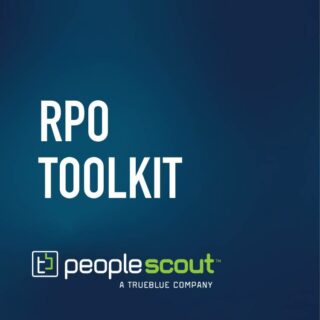The Australian Healthcare and Social Assistance sector workforce has a projected growth rate of 14.9% or an additional 250,300 positions in the 5 year period from 2018 to 2023. 28% of all new jobs in this period will be in this sector. (Source: Industry Outlook – Australian Jobs, Australian Bureau of Statistics) In one scenario presented by the OECD, healthcare spend could account for nearly 14% of Australia’s GDP by 2030. (Source: OECD Report)
For healthcare organisations looking to keep pace with growth, investing in the right recruiting technology can streamline the recruitment process and help them keep up with staffing demand. In this post, we outline how recruiting technology helps healthcare organisations stay ahead of the talent curve from the beginning to the end of the hiring process.
Optimised Job Descriptions
A well-written job description is essential for attracting the best candidates for open positions. Accurate and optimised job descriptions not only engages great talent but clearly outlining the scope of the position also ensures that once hired, healthcare workers can fulfill their duties and responsibilities.
Optimised job descriptions also enable healthcare recruiters to match the right candidates with available positions by documenting the specific responsibilities of each role, including the certification and licensing requirements, the physical demands of the job and the location of the facility.
By creating more appealing and inclusive job descriptions, healthcare organisations can also increase the diversity of their candidate pool while attracting better-fitting candidates to open positions.
Tips for creating appealing job descriptions include:
- Use keywords in job titles and descriptions so applicants can find the postings more easily.
- Make job descriptions concise and easy to read on mobile devices.
- Answer the “so what?” question: what makes your healthcare organisation a place job seekers should want to work at?
How technology can help optimise job descriptions
Technology can be leveraged to optimise and create more engaging job descriptions for both clinical and non-clinical healthcare positions. For example, some recruiting technology platforms can conduct sentiment analysis on job descriptions to identify the potentially biased language and suggest alternatives and synonyms for more objective and neutral terminology.
Removing biased language is not the only way technology helps healthcare recruiters optimise job descriptions. At PeopleScout, our Affinix™ platform can help healthcare organisations improve job descriptions by optimising career pages and job postings for search engines. One way the tool does this is by offering suggestions for optimised title tags for every job posting.
Examples of optimised title tags are:
- Nursing Job Opening | XYZ Healthcare
- RN Jobs Available, Chicago | XYZ Clinic
- Hospital Food Service Jobs in Chicago | XYZ Hospital
Technology platforms that provide SEO guidance are also powerful tools for adding relevant keywords, which are crucial for job description optimisation. Once relevant keywords are identified, recruiters can add them to the job description text, especially in the page title and subtitles, in order to help the page rank higher in search engine results for those specific keywords.
Helping Healthcare Recruiters Source Candidates
For healthcare recruiters, maintaining a steady pipeline of qualified talent is essential. Unfortunately, the tight healthcare labor market can make consistently sourcing qualified candidates difficult. What’s more, it can be difficult for healthcare recruiters to identify and keep track of previous applicants who may be a good fit for new roles.
The unfortunate reality is that many healthcare organisations lack the time and resources to source high-quality candidates consistently. This can add up to a lot of stress for those responsible for maintaining a healthy talent pool for an organisation’s open positions.
How technology can improve sourcing candidates
Recruiting technology can help reduce the amount of time recruiters spend on sourcing candidates by finding more platforms, channels and databases to search for passive candidates. Beyond time savings, one of the more significant developments in recruiting technology is the proliferation of AI-enabled candidate sourcing, which has the following benefits:
- AI-enabled sourcing tools can discover patterns in resumes, social profiles and other sources of data to find candidates that are ideal matches for a job’s requirements.
- AI technology can help reduce bias in candidate sourcing by disregarding candidate demographics (e.g., race, gender, age) in its decision making.
- AI algorithms crawl potential candidates’ online profiles and portfolios to help source passive candidates.
- AI can be used to source both external and internal candidates by screening the existing resumes in a healthcare organization’s applicant tracking system (ATS) to find strong matches for current open positions.
Screening Candidates
The process of screening candidates, much like candidate sourcing, can be time-consuming for recruiters who are already stretched thin. Recruiters need to analyse workforce data, formulate job descriptions, verify candidate information and check references. To make sure recruiters are able to perform all of these functions, it’s important that the screening process is as efficient as possible.
How technology can help healthcare recruiters screen candidates
One of the most efficient applications of recruiting technology is utilising AI to automate the resume screening process, especially for high-volume or high-turnover positions. Intelligent screening software that incorporates predictive analytics and machine learning to understand top talent behaviors and predict factors such as cultural fit. Smart screening that analyses a healthcare organisation’s existing ATS or CRM to figure out which candidates became successful and unsuccessful healthcare workers based on their performance and tenure and turnover rates make screening and hiring the top candidates easier than ever.
Digital assessments that test an applicant’s skills and capabilities are also making screening candidates easier. Hiring managers can deploy digital assessments to test aptitude, personality, and skills and use the objective data and results to help make more informed hiring decisions.
Interviewing and Hiring Healthcare Candidates
In the healthcare industry, it is crucial to attract and hire the most qualified candidates because many positions have a direct impact on patient care. Hiring the wrong candidate can be not only dangerous for patients but also costly, as healthcare organisations can face litigation for injuries sustained or maltreatment of patients by staff. The right healthcare recruiting strategies and interviewing techniques can ensure that healthcare facilities hire the best candidates.
How technology can improve the interview process
There are a variety of ways that recruiting tools and technology can improve the interview process, such as:
- Automated interview scheduling that allows candidates to schedule or reschedule interviews themselves. All recruiters have to do is provide candidates with available time slots.
- Digital video interviews that can be conducted be pre-recorded and viewed when it’s convenient for recruiters and hiring managers.
- Chatbots that can help answer candidates’ questions and provide information on next steps in the recruitment process.
Conclusion
Technology streamlines the healthcare recruiting and hiring process by providing an improved experience for both recruiters and candidates. While technology can assist recruiters in improving the functions of the recruiting process, it cannot replace human touch, experience and instincts when it comes to hiring the best talent. Employers should look for a talent partner with comprehensive talent acquisition and workforce management solution, where technology is just one part of the puzzle.




